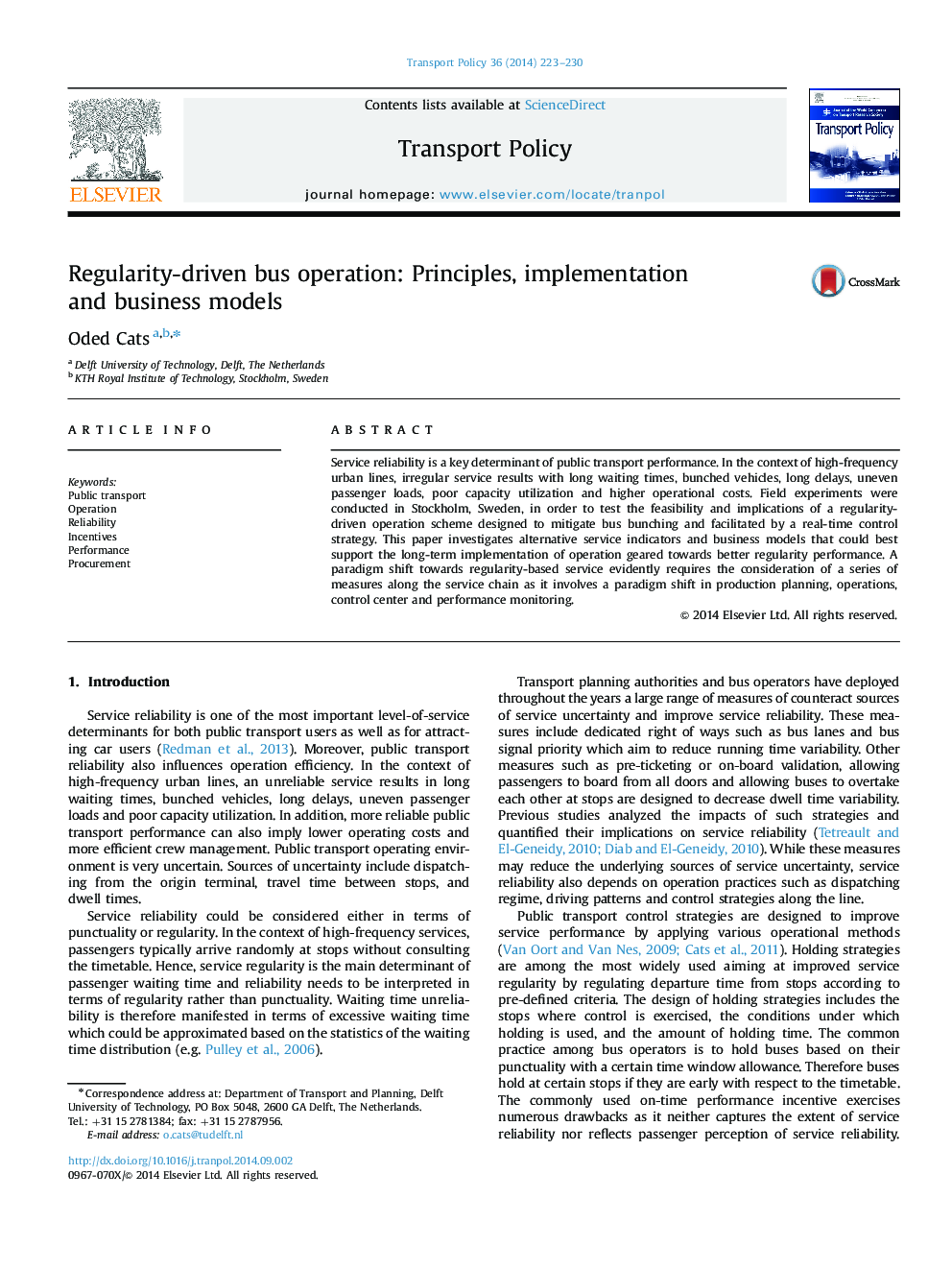| Article ID | Journal | Published Year | Pages | File Type |
|---|---|---|---|---|
| 7497834 | Transport Policy | 2014 | 8 Pages |
Abstract
Service reliability is a key determinant of public transport performance. In the context of high-frequency urban lines, irregular service results with long waiting times, bunched vehicles, long delays, uneven passenger loads, poor capacity utilization and higher operational costs. Field experiments were conducted in Stockholm, Sweden, in order to test the feasibility and implications of a regularity-driven operation scheme designed to mitigate bus bunching and facilitated by a real-time control strategy. This paper investigates alternative service indicators and business models that could best support the long-term implementation of operation geared towards better regularity performance. A paradigm shift towards regularity-based service evidently requires the consideration of a series of measures along the service chain as it involves a paradigm shift in production planning, operations, control center and performance monitoring.
Related Topics
Social Sciences and Humanities
Social Sciences
Geography, Planning and Development
Authors
Oded Cats,
